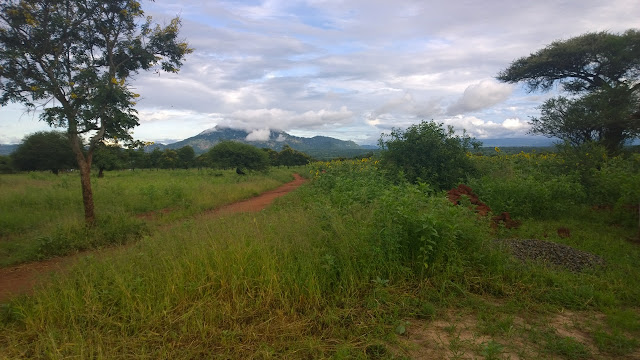Working the Borderlands

Where India Meets Nepal - June 2010
The monsoon rains were still building far to our south in the Bay of Bengal when our flight touched down at Biratnagar, some 180 miles east from, and 4300 feet below, Kathmandu. Another 45 minutes by hired van brought us out into a landscape of dusty fields and dried paddies stretching off to the south as far as the eye could see - well beyond Nepal's nearby border with India. This is the terai, the plains, and they were dry - ready for the promised first drops of water from above.
It is here, in a small village called Laukahi, that we met two returnees by the names of Paras and Ratna and witnessed work that had begun in Malaysia bearing fruit in this, the unlikeliest of places. They had come to Malaysia in search of work, young men looking to support their families, and in the process found their lives transformed through the outreach, support, and evangelism of Malaysian Christians.
Now, having returned to Nepal, they themselves are putting into practice that which they had seen and heard in Kuala Lumpur in an ethnically and religiously charged environment - a frontier where Nepal meets India, Hinduism meets Islam, and the Christian witness is next to non-existent.
A dozen yards off of the highway from Kathmandu, the words 'Basic Computer Training' in both English and Nepali stretch across an open storefront on a bright blue banner. Behind two simple partitions sit three and a half computers, protected from the dust outside by thin pieces of cloth. Here, with the only stable internet connection in town, Paras conducts classes introducing villagers to keyboards and mice, Microsoft Office and Yahoo Mail, and - as opportunity and the Spirit allow - the story of a God who so loved the world . . .
A couple miles north along a rutted road, in a collection of solidly constructed houses made of packed mud and hand-hewn timber that goes by the name of Madhuwan, twenty to forty gather regularly with Ratna to also learn about this God. Some have already converted to this new faith, leaving behind caste, tradition, and (often times) family. Others look on from the sidelines to see what the fuss is all about. Over time, as cows munch lazily on grasses and while chilies dry in the sun, most eventually join in the songs - accompanied only by hand drums and simple rhythm instruments - and listen to the testimonies that are shared by their brothers.
Replacing the classic upper room setting with an open courtyard, this fledgling community is a house church in the old-school sense and the only Christian Assembly in the area.
With minimal resources and often at great personal expense, the two work tirelessly, fueled (it would seem) by life-changing encounters a subcontinent away. Following their time as workers in Malaysia and flowing from the witness of the Malaysian Churches, they got going, to paraphrase Matthew 28, returning home and making disciples along the way.
Working as they do in the geographical and religio-cultural borderlands of the terai, I can't help but think of these Nepali brothers of mine as pioneers. It is in large part because of them, and countless others like them in villages like Laukahi the world over, that the Christian Church continues to expand and its 'geographical center' continues to shift South and East, from Europe and North America to Latin America, Africa, and Asia.
In their computer classes and house churches one can see lives being tilled and a new generation of the faithful being cultivated, ready to rise up and lead songs of faith in a new language and key. Like the landscape around them, these holy Christian people are prepared to spring forth and bear fruit abundantly as the promised waters of life draw near.


Comments